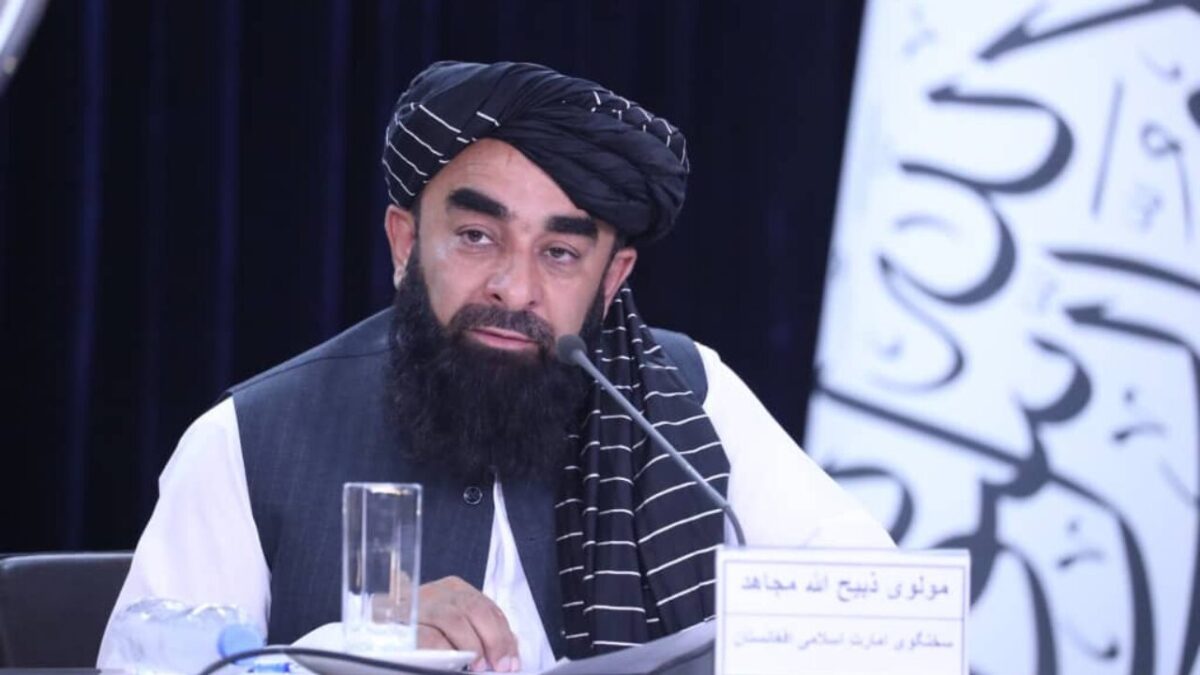KABUL, Afghanistan — Three sources told Amu that Taliban chief spokesman Zabihullah Mujahid, in a meeting in Kandahar on Tuesday, said that the United States has resumed its relationship with the Taliban. He cited the recent visit of an American delegation to Kabul and the lifting of sanctions on several Taliban leaders as the result of what he described as the Taliban’s “successful diplomatic policy.”
“The lifting of sanctions on some Islamic Emirate (Taliban) leaders and the arrival of the U.S. delegation in Kabul are outcomes of our effective strategy,” Mujahid said, according to the sources, who spoke on condition of anonymity because they were not authorized to share details of the internal meeting.
He also credited Sirajuddin Haqqani, the Taliban’s interior minister, with playing a key role in managing relations with the United States, and claimed the Taliban are also building closer ties with China. Mujahid said a long-planned trade corridor through the Wakhan region in Badakhshan Province is expected to open this year, which he described as marking a new chapter in relations with Beijing.
The remarks come amid signs of deepening engagement between U.S. officials and members of the Taliban, despite Washington’s public insistence that formal recognition of the Taliban remains off the table.
Sources familiar with recent talks told Amu that the American delegation — led by former U.S. envoy Zalmay Khalilzad — met with senior Taliban officials during a visit to Kabul and held separate meetings with Haqqani in the United Arab Emirates. According to these sources, U.S. officials were encouraged by what they viewed as Haqqani’s “softer posture” and consider him a potential interlocutor for future negotiations.
The sources also said that during the visit, U.S. officials presented the Taliban with two proposals: the return of U.S. military equipment left behind during the 2021 withdrawal, and the potential reactivation of the Bagram Air Base under U.S. control. The Taliban have yet to make a final decision, though Haqqani’s position is expected to be pivotal in the internal debate.
At the same time, internal divisions within the Taliban leadership appear to be widening, particularly between the powerful Kandahar-based circle led by Supreme Leader Hibatullah Akhundzada and the faction aligned with the Haqqani network. According to sources, Akhundzada has recently ordered the redeployment of some Haqqani-aligned fighters from Paktia to other provinces — a move seen as an attempt to dilute Haqqani’s influence.
A cabinet-level meeting that was expected to assess Haqqani’s role within the Taliban hierarchy has been postponed until after Eid al-Fitr, further underscoring the fragile balance of power within the Taliban.
While some within the Taliban appear eager to pursue engagement with the West, Akhundzada has taken a hardline stance. According to one source, he warned that in the event of “foreign interference,” the Taliban would be prepared to resume armed resistance.
The developments come amid a flurry of diplomatic activity and speculation over whether the Taliban are seeking a broader reintegration into the international community — and if Washington is prepared to test new channels of influence within the Taliban’s fractured leadership.





